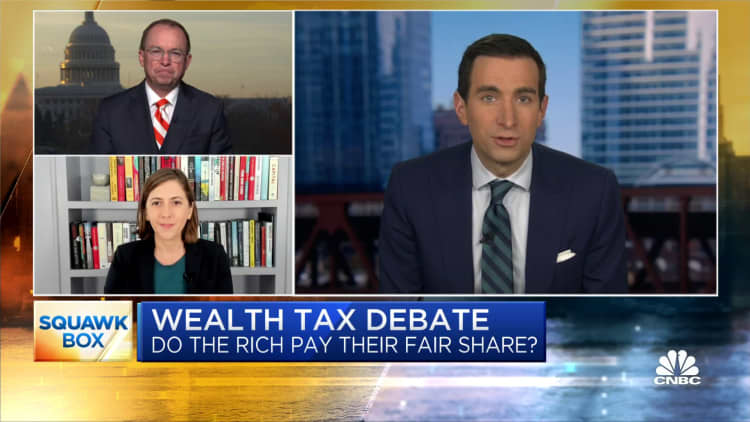Medianews Group | Getty Images
Whether you pick the lump sum or annuity payout, Loyd suggests a “cooling off period” after winning the lottery before making any big financial moves.
If you’re planning to donate money to charity, start a business or make any investments, it will be “really tricky” to line up the right team of experts before year-end. “You probably wouldn’t be getting the ‘A’ team,” Loyd said. “So, I would buy yourself some time.”
Plan for higher taxes in 2026
The winner will also need to plan for looming tax law changes slated for 2026 when provisions sunset from former President Donald Trump’s signature tax overhaul.
For example, without changes from Congress, the top federal income tax bracket will revert to 39.6% from 37%. “That’s a lot of money,” Loyd said.
The winner will also need to plan for federal estate taxes. While the exemption rises to $13.61 million per individual or $27.22 million for married couples in 2024, those limits will drop by roughly one-half in 2026.
Robert Dietz, national director of tax research at Bernstein Private Wealth Management in Minneapolis, said estate tax exemption change is “the biggest issue” his firm is talking about with high-net-worth clients right now.
Wednesday’s Powerball drawing comes roughly two months since a single ticket sold in California won the game’s $1.765 billion jackpot. Meanwhile, the Mega Millions jackpot is back down to $57 million and the odds of winning that prize are roughly 1 in 302 million.
Don’t miss these stories from CNBC PRO:
Credit: Source link




